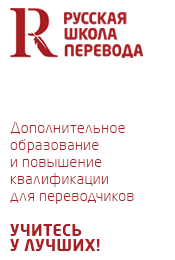Еду на съезд
Меня пригласили выступить с лекцией на ежегодной ассамблее Американской ассоциации переводчиков. Организация почтенная, да и вообще на Западе такие ассоциации — дело серьезное, а не «междусобойчик». О своих впечатлениях постараюсь написать; как минимум, дам на сайт текст выступления. А пока — сообщение из бюллетеня Ассоциации.
An Introduction to Our 2009 Greiss Lecturer Pavel Ruslanovich Palazhchenko
by Nora Seligman Favorov
Our 2009 Greiss lecturer Pavel Palazhchenko writes, “I’ve been a translator and interpreter for almost 40 years now, and my fascination with ‘the untranslatable’ has been growing all these years.” This statement, which originally appeared in an article in Russia Beyond the Headlines (the English-language spin-off of Российская газета) and was republished on his website, accounts for one half of the reason he has been invited to speak to our membership in New York this fall. The other half of the reason is that this “fascination” has spawned so many insights that are, well, fascinating.
I first became convinced of this when I was given a copy of his rather non-traditional “dictionary” several years ago: Мой несистематическии словарь [My Unsystematic Dictionary] (Moscow, 2003). (The gift, incidentally, was from assistant SLD administrator Elana Pick, another benefit of the “bilingual partnership” described on page 18.) Palazhchenko is not, of course, a lexicographer, at least not in the narrow sense of the word. He is a Russian<>English interpreter who has had a rich and varied career, including his long and ongoing tenure as interpreter for and now aide to President Mikhail Gorbachev. A 1972 graduate of Moscow’s Thorez Institute, Palazhchenko interpreted at the UN in New York through the late seventies before going to work at the Soviet Foreign Ministry. He went to work directly for President Gorbachev in early 1991.
The “unsystematic” dictionary takes some of the “untranslatables” from both Russian and English and explores the particular challenges they pose for the other language. In my personal copy there are a few pages that are particularly dog-eared. For example, I would be embarrassed to admit how many times I went back to his half-page discussion of the Russian word конъюнктура before I began to get the hang of it (as he explains, the term, which comes from the French conjoncture, refers to a short-term, immediate situation with a connotation of something that can be taken advantage of). The book also features a very useful and interesting section called “Practicum,” where he takes an official statement by President Putin and its official translation into English and discusses some ways in which the translation falls short. This section (like the rest of the book) demonstrates his extraordinary command of the subtleties of English usage, to say nothing of his native tongue.
I would encourage any of our readers who know Russian even slightly to explore his website <http://pavelpal.ru>, which includes several Englishlanguage commentaries on language (including the one republished on page 10). I was particularly pleased to find both the Russian and English versions of a fascinating article coauthored by our 2006 Greiss lecturer, Michele Berdy, critiquing recent translations of Russian classics, which I first read in the Russian translation journal Мосты: http://pavelpal.ru/node/311.
Pavel Palazhchenko will be giving a preconference seminar in English geared primarily toward interpreters, but undoubtedly also useful for translators, on strategies for dealing with typological differences between languages (Seminar V, October 28, 2 PM). His Greiss lecture, entitled “Translation and Interpreting in a Pragmatic Age,” will be delivered Friday afternoon, October 30, at 2 PM.
- Войдите на сайт для отправки комментариев







Последние комментарии
5 лет 35 недель назад
5 лет 45 недель назад
6 лет 22 недели назад
6 лет 41 неделя назад
7 лет 2 недели назад
8 лет 26 недель назад
8 лет 26 недель назад
8 лет 49 недель назад
8 лет 49 недель назад
9 лет 7 недель назад